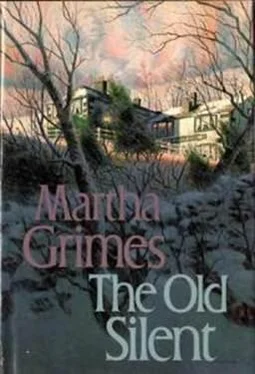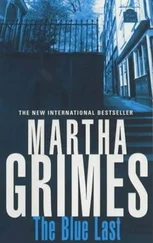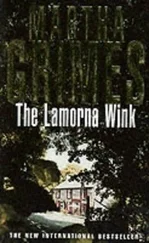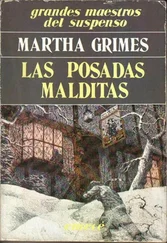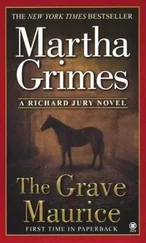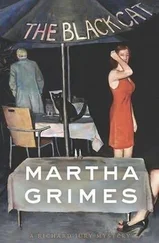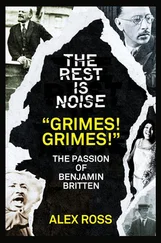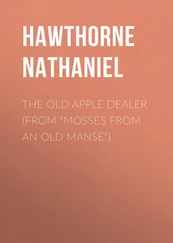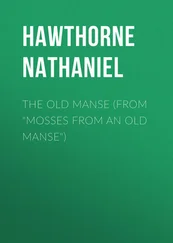Martha Grimes - The Old Silent
Здесь есть возможность читать онлайн «Martha Grimes - The Old Silent» весь текст электронной книги совершенно бесплатно (целиком полную версию без сокращений). В некоторых случаях можно слушать аудио, скачать через торрент в формате fb2 и присутствует краткое содержание. Жанр: Детектив, на английском языке. Описание произведения, (предисловие) а так же отзывы посетителей доступны на портале библиотеки ЛибКат.
- Название:The Old Silent
- Автор:
- Жанр:
- Год:неизвестен
- ISBN:нет данных
- Рейтинг книги:5 / 5. Голосов: 1
-
Избранное:Добавить в избранное
- Отзывы:
-
Ваша оценка:
- 100
- 1
- 2
- 3
- 4
- 5
The Old Silent: краткое содержание, описание и аннотация
Предлагаем к чтению аннотацию, описание, краткое содержание или предисловие (зависит от того, что написал сам автор книги «The Old Silent»). Если вы не нашли необходимую информацию о книге — напишите в комментариях, мы постараемся отыскать её.
The Old Silent — читать онлайн бесплатно полную книгу (весь текст) целиком
Ниже представлен текст книги, разбитый по страницам. Система сохранения места последней прочитанной страницы, позволяет с удобством читать онлайн бесплатно книгу «The Old Silent», без необходимости каждый раз заново искать на чём Вы остановились. Поставьте закладку, и сможете в любой момент перейти на страницу, на которой закончили чтение.
Интервал:
Закладка:
Jury stood looking at the facade and then into the dim interior where she was paying for a ticket. He was beginning to feel not only like a fool, but a voyeur. He hadn't followed a good-looking female since he was sixteen, except if a case he was working on required it, and it had been some years since he had had to do that sort of footwork himself.
The little foyer or outer room was crammed with small toys-tops, wooden figures, sweets and souvenirs clustered on shelves. An amiable young man in a Dallas Cowboys sweatshirt and a forlorn-looking girl sat behind the counter, his happy expression and her sad one like the coupled masks of comedy and tragedy. She seemed surprised that here yet was another person over ten or twelve who was handing over fifty pence to go inside and see the toy display. The man smiled as if he approved of such larking about on the part of adults. Jury returned the smile and handed over the ticket money.
Just then a sallow kid with a lick of strawlike hair shooting up on the crown of his head came from the inner room into the outer room, frowning, as if he hadn't got his money's worth. The girl was generous; she realized the problem and told the boy to go back in and push the button. She then instructed Jury in a similar fashion, in case he too was a bit thick about getting the train setup to work. It wouldn't work, after all, unless you pushed the buttons. He thanked her and followed the boy into the museum.
She was standing at the end of the narrow aisle that ran between the glass walls crammed to overflowing with the detritus of childhood. Stuffed dolls and bisque dolls; elaborately designed dollhouses; mechanical toys and wooden toys.
He wondered, really, if the boy there at the end, standing beside her before the train display, could appreciate all of this. It was, in some sense, a museum for adults. He looked at the replica of a skyscraper built from a Lego set and remembered how much he had wanted one. Against the wall opposite was the most intricately built dollhouse he'd ever seen. Its little rooms were furnished on four sides, and it was probably meant to turn on a mechanical wheel. It even had a billiard room, a green baize table at which were two players, one holding his cue stick, the other bent over the table.
While he looked over this catalogue of childhood, he was aware of the faint buzzing noise of the trains, set in motion by the towheaded lad at the end.
Their backs were to him, the lad and the woman in the cashmere coat, standing side-by-side. Were it not that the lad could have done with a scrubbing and darning, and she so expensively turned out, they might have been mother and son, their coloring was so similar. The trains went round and they stood in a sort of comradely silence, watching. It was the boy who seemed to tire of this first; he walked back up the aisle, brushed by Jury, and left, still frowning, as if the trains, the bits and pieces of miniature buildings, and perhaps toy people and animals hadn't done something clever enough.
Still she stood there, pushing the button that operated the train again. He could see only her back and the faintest impression of her reflection in the glass.
Then she made a strange gesture. She raised her gloved hand, fingers outspread against the glass, and leaned her forehead against it.
It was as though she were looking at something she had once wanted terribly, as Jury had wanted the Lego set.
It was at that point that he had felt intensely ashamed, felt himself to be a voyeur, an intruder, an invader of privacy. He left the toy museum, feeling he would have to let her go.
"Let her go": certainly an odd, proprietorial way of regarding a person with whom he'd had no contact, hadn't even exchanged a word. Hadn't even, really, exchanged a look, given the glance she had passed over him had probably not registered.
And he was picking it apart, too, adolescently, going back over their mutual occupancy of the two different places as if something might come back to him that would suggest he had kindled at least a passing interest…
It was all one more sign-his doctor would say "symptom"-of just how tired he was.
The only thing to do to stop this adolescent desire to hang about was to walk back to the car park, collect his rented car, and get on with his trip back to London.
He got as far as sitting behind the wheel of the Austin-Rover, letting the engine idle, staring through the windscreen at the almost-deserted car park and the gardens beyond where the children's swings lifted slightly and twisted in the wind.
It had been a lark, a cheering thought, after the wasted week at headquarters in Leeds, to drive the short distance to Haworth and spend the night.
He slid down in the seat, thinking this sudden decision to return was equally ridiculous (and symptomatic, Mr. Jury) , since he had meant to stop here overnight. He was just too damned tired to make the four – to five-hour trip back to London. Part of the weariness came from the week in Leeds doing little more than getting baleful looks.
This self-deprecatory notion was all part of the malaise. " Accidie , Mr. Jury," (his doctor had prissily termed it, mouthing the word as if it were a tasty new drink). A larger part of this depression came from the knowledge that he had agreed to this assignment to get out of London and away from Victoria Street and New Scotland Yard, where he felt he had lately been bumbling about, making errors of judgment, taking wrong decisions, giving in to uncharacteristic outbursts of temper.
Sitting here now, looking down the slope of snow-patched park where the light drew back, away from the swings, he wondered how much of his recent behavior was actual, how much exaggerated. Nothing dramatic had happened, beyond the occasion of his having got so bored listening to Chief Superintendent Racer's litany of Jury's recent failings (no matter how minor) that Jury had offered to put in for a transfer. What concerned Jury was not the melodrama of this but the lack of it; the suggestion had merely come off the top of his head and he hadn't even enjoyed, particularly, the dilemma it had caused Racer.
Accidie. A holiday, that's what you need. Been working too hard . Then there were the prescriptions Jury had tossed in the nearest dustbin after leaving his doctor's office.
Accidie . It was as good a word as any (he had thought, lying awake at three a.m., which had lately become habitual); perhaps it was better in its foreign-soundingness, defining a condition that his own language was unable to describe. Malaise did not really fit, though he preferred it, for it sounded like a passing fancy, something that could probably be caught lying in the sun on the Amalfi coast and possibly left there, like sunburn.
He could only really think of it in its much simpler guise of depression. In a way, it was a comforting term, for everyone had it, or thought he had it, now and again. It was just that Jury did not feel it would pass off like sunburn or sore eyes. Indeed, he wondered why people seemed to think of it as a condition in which one felt merely dull, stupid, and disinterested in the day's events, when it was actually almost the very opposite. It was an active condition; close to an agony of conflicted feelings and feverish thoughts about one's work, life, ability to fulfill some expectation that was in itself ambiguous, shrouded in mystery. He was not, he knew, ordinarily a contented man. But he was very good at borrowing the expression, the mannerisms, the outward calm of one. And such a facade was helpful, perhaps necessary to his effectiveness as a policeman. What he felt as he lay wakefully staring at the ceiling was that the veneer was chipping.
And it occurred to him now, sitting in the musty car, that he had probably made this little side trip for a day or two of anonymity. Was it this feeling of lack of purpose, of vague possibilities and unformed hours that had made him feel a sense of kinship with the woman in the museum? For she seemed to be wandering here as much as he.
Читать дальшеИнтервал:
Закладка:
Похожие книги на «The Old Silent»
Представляем Вашему вниманию похожие книги на «The Old Silent» списком для выбора. Мы отобрали схожую по названию и смыслу литературу в надежде предоставить читателям больше вариантов отыскать новые, интересные, ещё непрочитанные произведения.
Обсуждение, отзывы о книге «The Old Silent» и просто собственные мнения читателей. Оставьте ваши комментарии, напишите, что Вы думаете о произведении, его смысле или главных героях. Укажите что конкретно понравилось, а что нет, и почему Вы так считаете.
